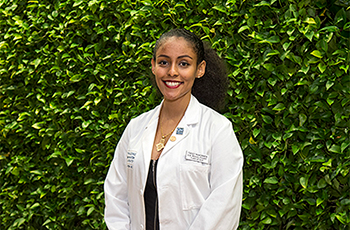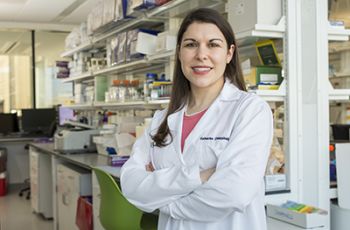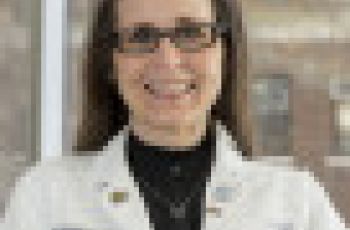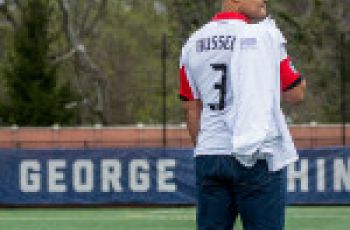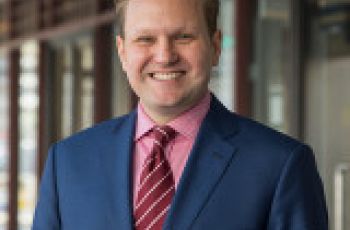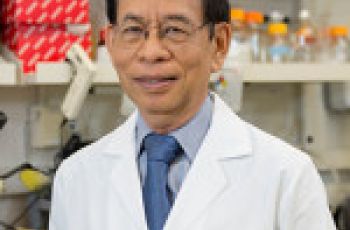Katherine Dvorak
Tirsit Makonnen, a second-year MD student at the George Washington University (GW) School of Medicine and Health Sciences, understands the power of giving back.
The future of cancer research, in the opinion of Katherine Chiappinelli, PhD, at the George Washington University School of Medicine and Health Sciences (SMHS), centers on combining immunotherapy with other treatments.
As a child growing up in a small village in western Paraguay called Santa Rosa, Cheralyn Hendrix, M.D., recalls standing by her father’s side as he sewed up a gash from an ax wound on the palm of a 12-year-old boy’s hand, and spending mornings and afternoons with her mother as she provided aid to
Robbie Russell walked onto the soccer pitch to the thunderous sound of 80,000 voices singing: “Die meister [the masterful], die besten [the best], les grandes equipes [the great teams], the champions.” That was 13 years ago, and Russell was a right back playing for Norwegian professional soccer c
A straight line might be the shortest route between two points, but it’s not always the most desirable course. For J. Carl Craft, M.D.
Reamer L. Bushardt, Pharm.D., P.A.-C., DFAAPA, brings a wealth of expertise to his role as senior associate dean for health sciences at the George Washington University (GW) School of Medicine and Health Sciences (SMHS).
African trypanosomes are masters of disguise. Delivered through bites from the tsetse fly, once inside a host these parasites quickly disguise their appearance in a process called antigenic variation, all to avoid detection — and no parasite does it better.

